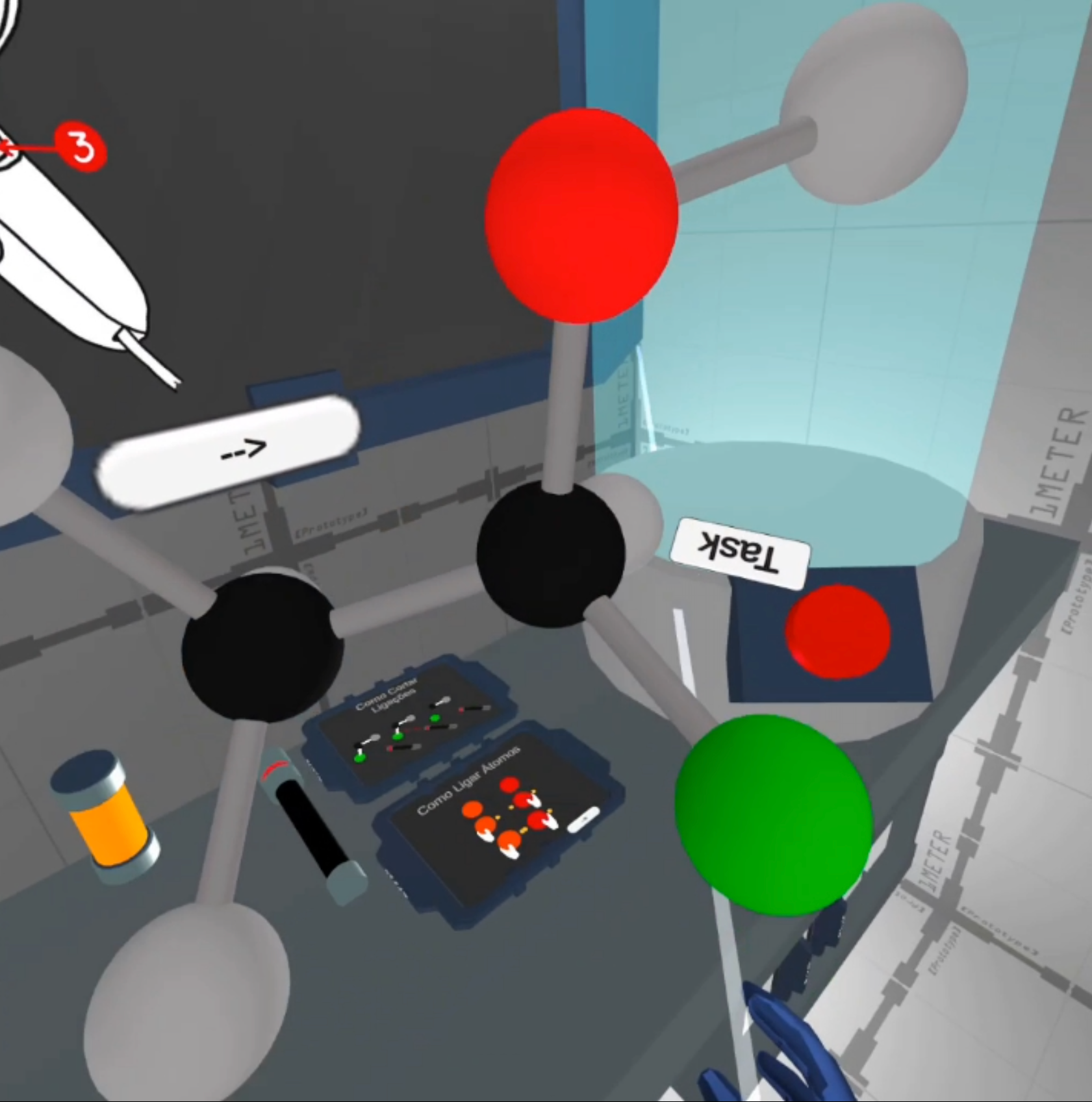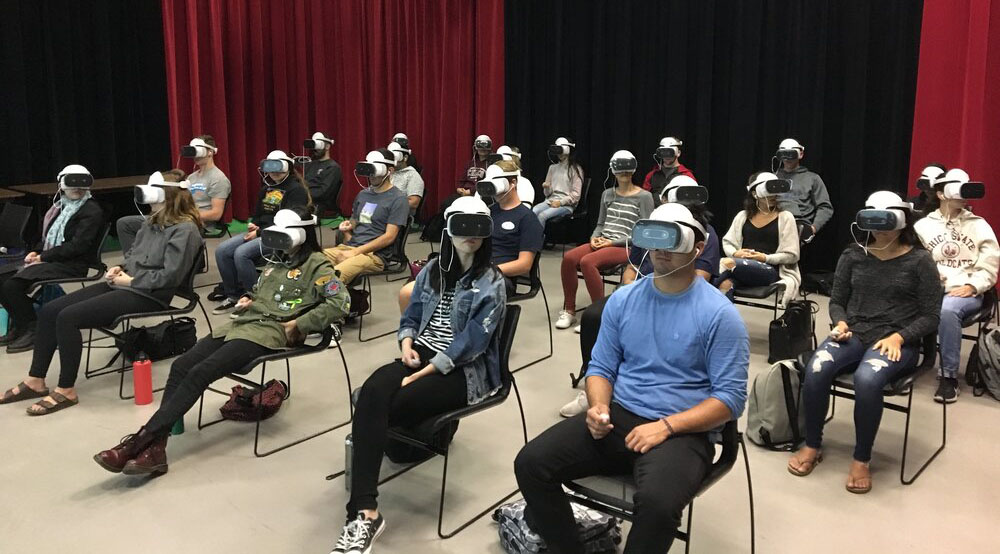CHEMTOUCH
In 2020 Prof. Vasco Bonifácio joined a pioneering teaching project aiming to teach organic chemistry under a virtual reality environment. The project Chemtouch has a multidisciplinary team of organic chemists (Vasco Bonifácio DEB, Dulce Simão, DEQ) and informatics (Rui Prada, DEI/INESC-ID and Daniel Lopes, DEI/INESC-ID) from Instituto Superior Técnico, University of Lisbon (IST-UL).
Chemtouch, funded by IST-UL, is based on an educational game previously developed under the Master Thesis "Touch on chemistry - Game to teach organic chemistry in virtual reality" (Iris Rodrigues, IST-UL, 2018). The video shows the new version of the CHEMTOUCH game developed under this project in 2021.

VIRTUAL REALITY IN CHEMICAL EDUCATION
The development of teaching tools for immersive educational experiences is gaining an huge popularity. The hype around virtual reality (VR) led to an extraordinary development of VR hardware and software, mainly driven by the video games industry. The potential of games in education is being explored classroom activities since gamification is a great way of enhancing student engagement, mainly due to the games intrinsic motivation. The current COVID-19 pandemic has reinforced the importance of alternative, non presential, teaching methodologies. In this context VR is foreseen as key tool in future eduction. A few examples of virtual chemistry resources are already available, most of them requiring a computer with special features. However, very recently an all-in-one (wireless, android-based) VR headset was released, the Oculus Quest, thus turning VR-assisted teaching a simple and fascinating task.

Lesson on Atomic Orbital Theory from the General Chemistry course, an innovative educational program developed by SAMA Learning at Chico State University, California, USA.